Brazil: War photographer André Liohn documents a country in chronic disorder
Never mind the Copacabana and Carnival hedonism: after returning home to Brazil, the war photographer André Liohn found a society on the edge, caught between gang violence and police brutality. Could this summer's Olympics provide some respite?
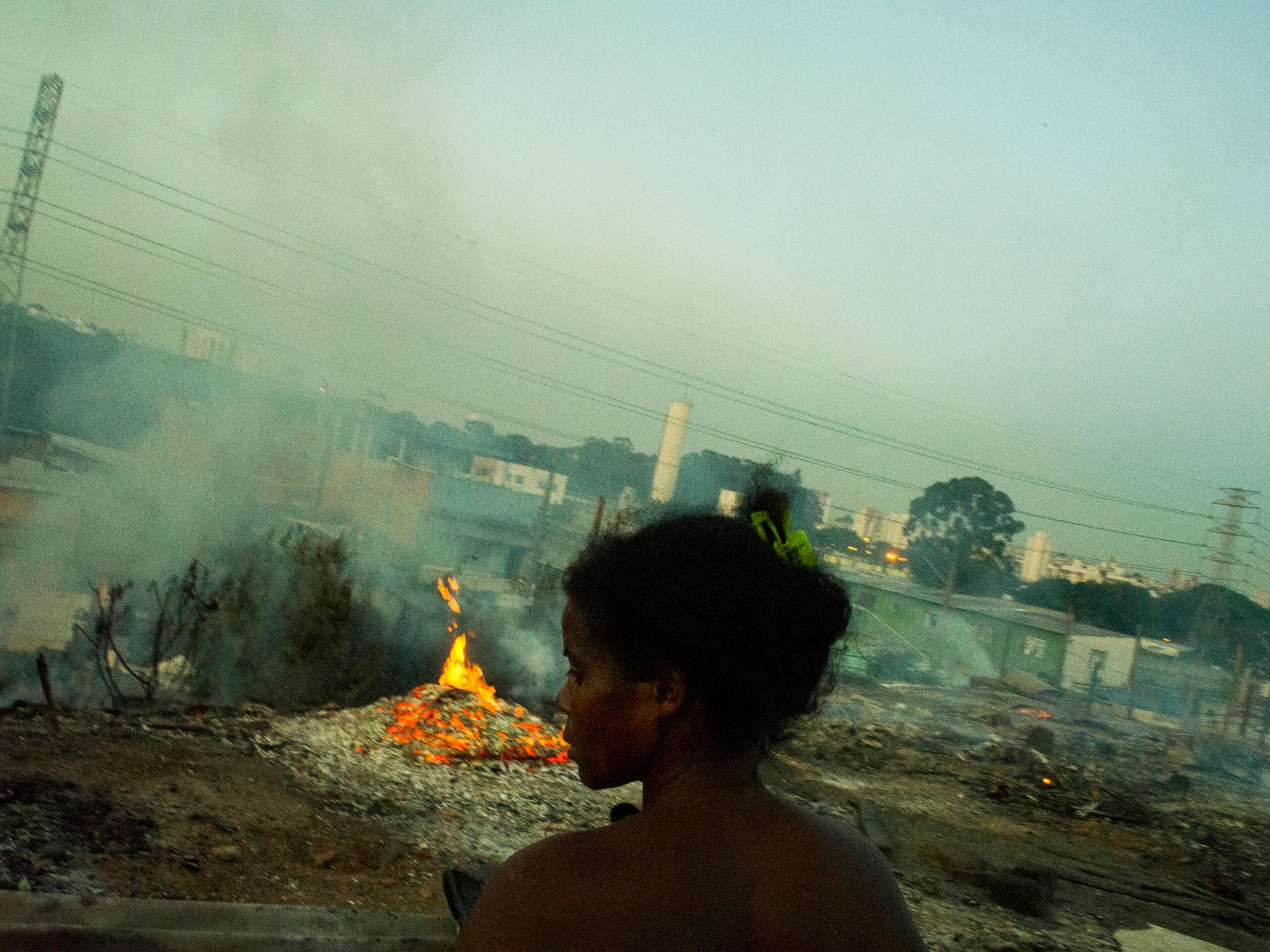
Your support helps us to tell the story
From reproductive rights to climate change to Big Tech, The Independent is on the ground when the story is developing. Whether it's investigating the financials of Elon Musk's pro-Trump PAC or producing our latest documentary, 'The A Word', which shines a light on the American women fighting for reproductive rights, we know how important it is to parse out the facts from the messaging.
At such a critical moment in US history, we need reporters on the ground. Your donation allows us to keep sending journalists to speak to both sides of the story.
The Independent is trusted by Americans across the entire political spectrum. And unlike many other quality news outlets, we choose not to lock Americans out of our reporting and analysis with paywalls. We believe quality journalism should be available to everyone, paid for by those who can afford it.
Your support makes all the difference.As Brazil prepares to host the 2016 Olympics, its global audience could be forgiven for thinking that this is business as usual. From the 2014 World Cup to its annual Carnival, Brazil is often regarded as a world leader in partying, a country of music, parades and costume. But beneath the colourful façade, Brazil is a darker place, one where social division and corruption have forged one of the world's most violent civilisations.
Chronicling this conflict is war photographer André Liohn. He left Brazil just over two decades ago, when he was 19, but whenever he returned, he was asked the same thing. "People wanted to know: 'Which is worse, our war in Brazil or the ones you photograph?'" he says from Sao Paulo, where he has lived while spending three years documenting violence in his homeland.
"They felt they could compare Brazil with Syria or Libya. They said Brazil was in a covert war. I wanted to see whether it was true, so I decided to use the same methods I use in combat situations to photograph the violence and then make a decision: does Brazil have a war?"
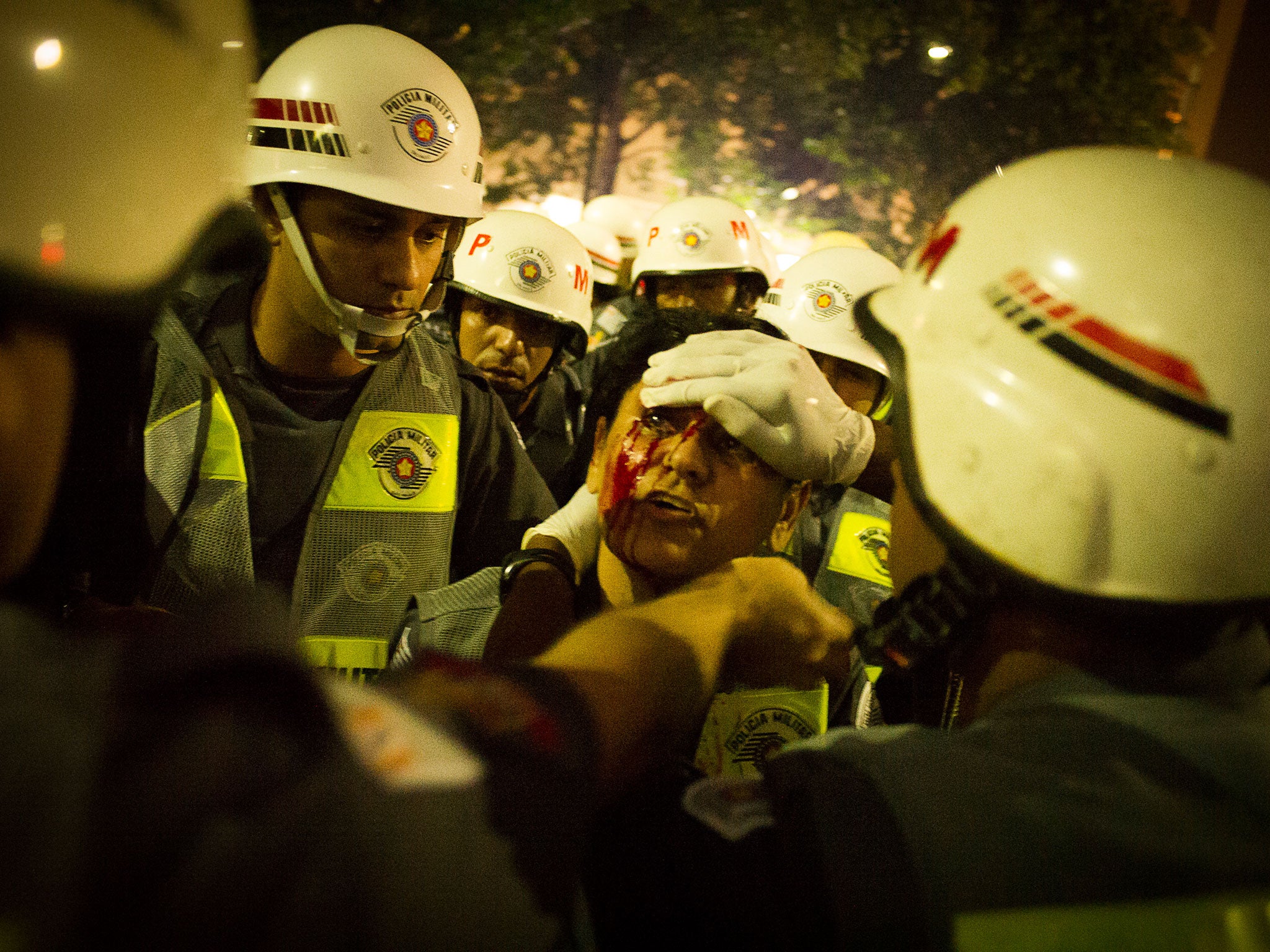
Liohn travelled throughout the country to record images of the violence that kills more than 60,000 people every year – the murder rate per capita is 32.4 per 100,000 people (the UK's is 1.2) – embedding himself with police and criminals to get close to a conflict that has a headcount comparable with Syria.
"You can't just show up and say, 'Hey, I saw you killing each other, can I take a picture?'" he says. "One thing I used to convince them to accept me was that I was a war photographer. Both sides liked that and took me to places where violent things were happening. Neither side tried to hide what they did. The police felt proud that they could torture people in front of me."
The gangs are rooted in drug-dealing, but other causes factor into the extreme violence. One of the largest cartels, the PCC, was formed after the 1992 Carandiru prison massacre, when 111 prisoners were killed by policemen. The PCC has waged war with the police ever since, building a powerful network of affiliated gangs in almost every state. In Rio, gangs fight each other and hijack trucks, driving them into favelas where the police fear to follow.
Liohn's photographs capture the aftermath of assassinations, shootouts and random killings, but they also show environmental catastrophe, suicides, drug addiction and poverty to give a sense of an entire country falling apart.
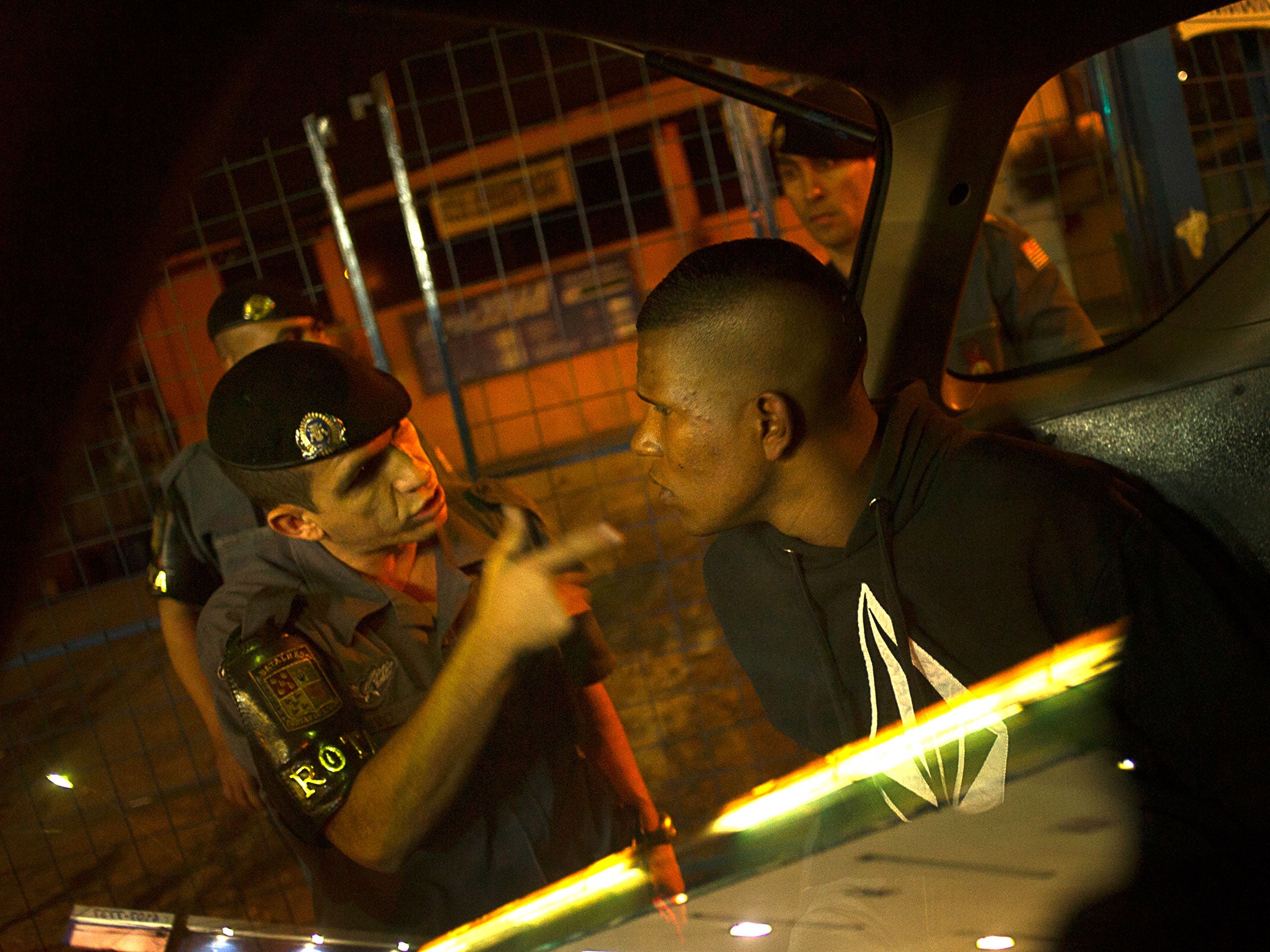
"Violence happens everywhere," he says. "A lot of those pictures were made in the most economically flourishing parts of Sao Paulo and Rio, where you have companies such as Facebook and Google. There's gang violence, but there are also people dying in traffic accidents or from preventable diseases. It's about society collapsing."
Bad as it is, however, Liohn stops short of comparing it with combat situations. "Brazil is not at war, but the possibility of violent death is present in everybody's life. At any moment, wherever you are, however much money you have." He likens the country's plight to Mogadishu, the capital of Somalia, where "civilian soldiers" have none of the boundaries found in professional armies. "In Brazil, as in Mogadishu, you have normal life going on, but there are armed groups who could kill or kidnap you any time they choose," he says. "In Rio and Sao Paulo, there are areas the police can't go, where teenagers openly carry massive machine guns."
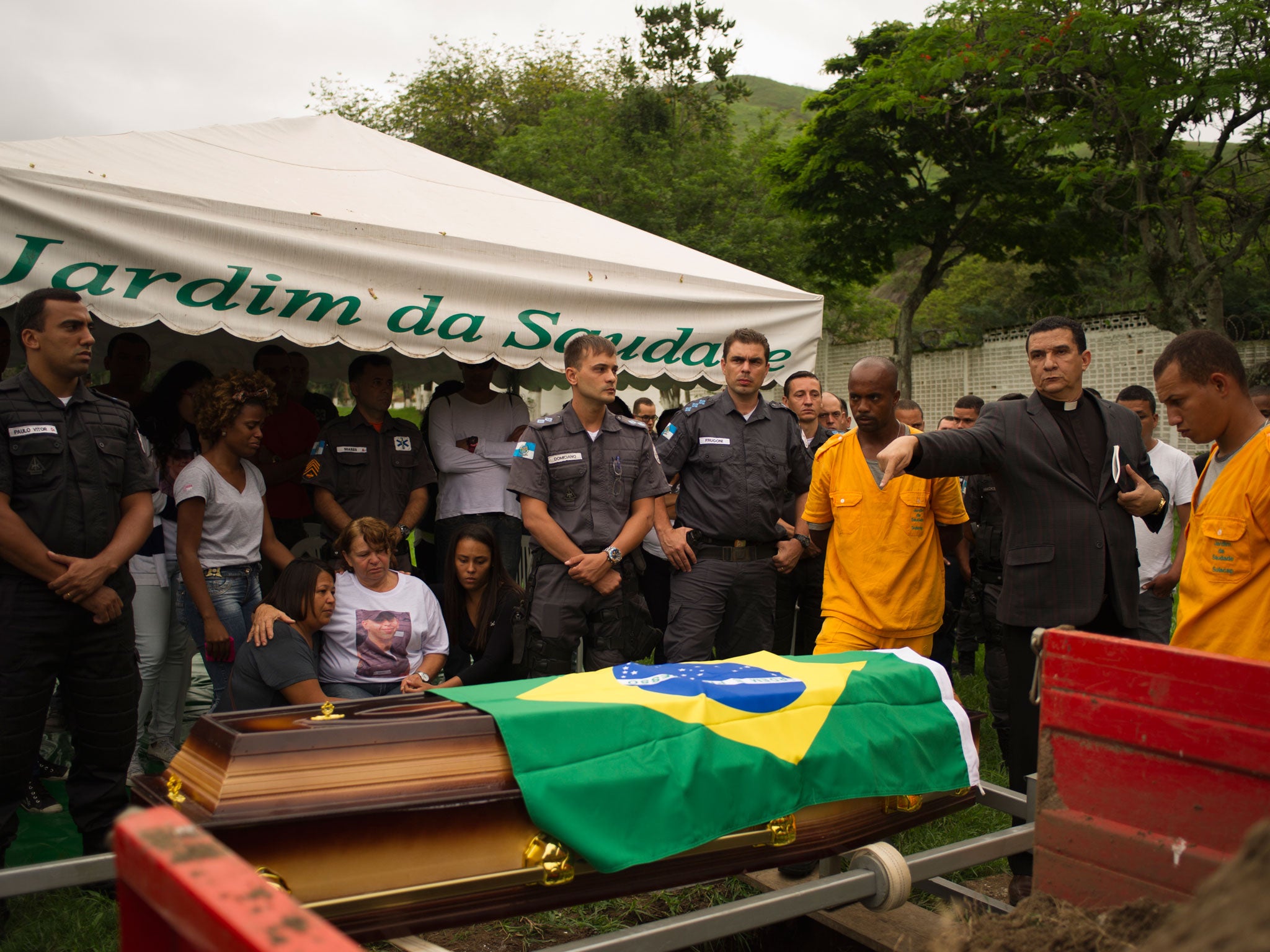
Among the causes of the situation, Liohn believes, is the withdrawal of the state from public life amid the corruption of the ruling Workers' Party. "They say that ideologies come to Brazil to die," he says. "They arrive here and meet the chaos and they can't survive. They're not applicable, as society is so divided by class. Everybody joins a gang; people unite with those in the same condition to feel safe, for security. If you are poor, you join the drug dealers."
He sees no simple solutions. Legalise drugs, and dealers have told him they will still flourish in Brazil's huge black market by making their product stronger and cheaper. "In Brazil," deadpans Liohn, "if people had to buy a shoe, they'd buy the illegal one."
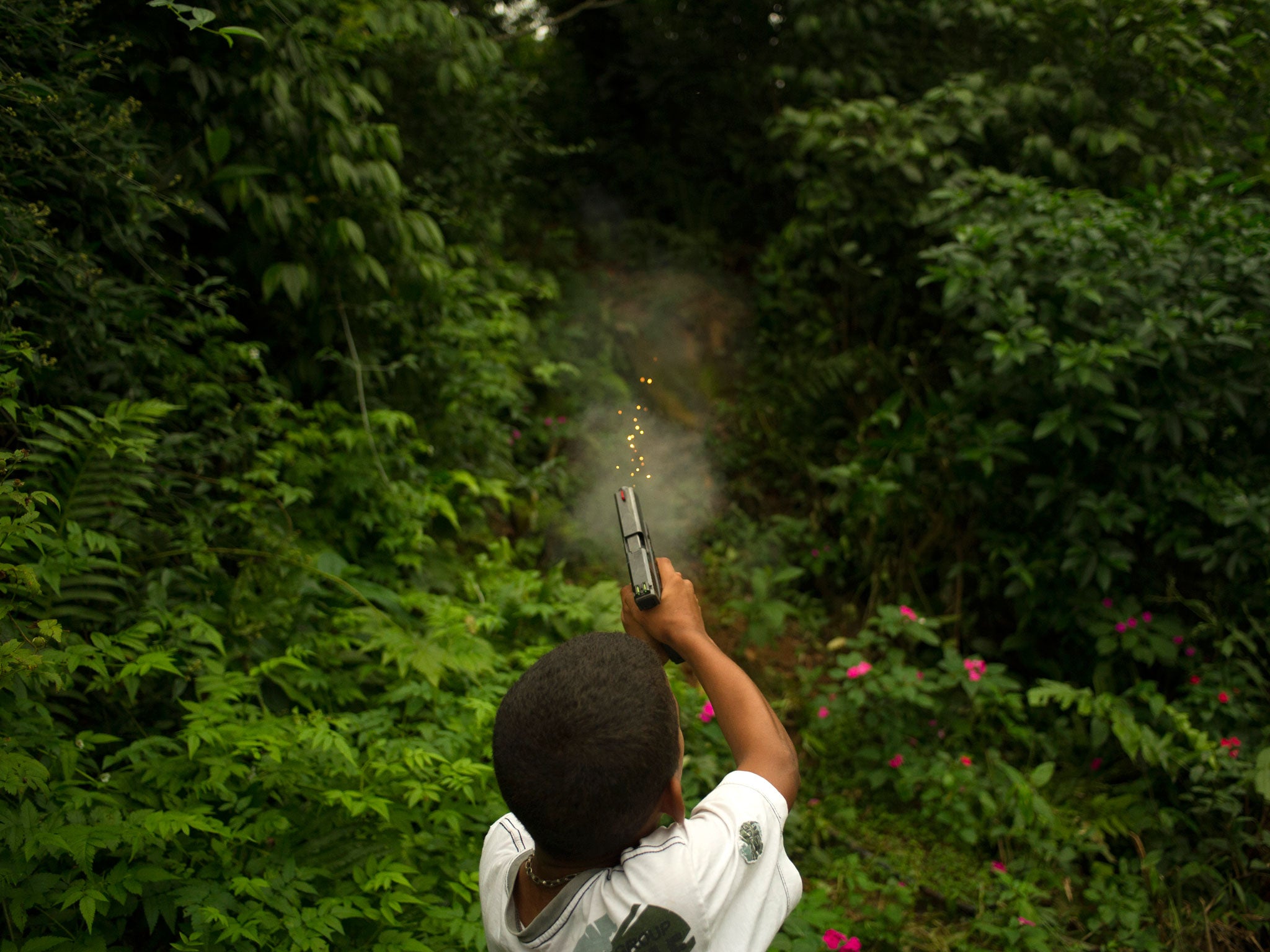
The one time the country is united, Liohn feels, is during Carnival, so he has also started photographing Brazil's growing scene of politicised hedonism. "During Carnival, everybody is friends," he says. "It creates so much energy, it is amazing. But after four days, everybody goes back to their own castes and classes. So the country is becoming more and more carnivalesque. There is a party culture here, people want to party their asses off from Monday to Monday. The organisers believe they will democratise the country through it."
Will the international party of the Olympics make any difference? "No, the Olympics is a party for TV and sponsors not the people. It's like the World Cup in 2014. The government will show up, clean everything, make the streets safe but there will be no legacy. In six weeks, everybody will have forgotten it happened."
For more: prospektphoto.net/stories/revogo
Join our commenting forum
Join thought-provoking conversations, follow other Independent readers and see their replies
Comments